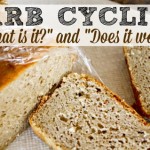Focus On: IIFYM
(If It Fits Your Macros)
I’ve received a few requests to talk about macro counting, especially since it’s surged in popularity on Instagram, particularly in the past year or so. You may have seen a picture of a giant donut covered in frosting + sprinkles, or a double-stuffed pizza and the hashtag “IIFYM,” which stands for If It Fits Your Macros. This is also referred to as “flexible dieting,” which has been a staple in the bodybuilding world for quite a while. The idea is that you want to meet certain macronutrient guidelines, but it doesn’t necessarily matter how you get there. This means that your “carbs” could come from sweet potato or sugar cookies; as long as you hit your numbers, it shouldn’t negatively affect your body composition.

(That one time I made bacon cookies)
So what exactly is macro counting, and how does it work?
First off, lets start by breaking down macros and what they are. The generally counted macros include fats (9 calories per gram), protein (4 calories per gram) and carbs (4 calories per gram). The recommended macro ratios vary depending on body composition your personal goals: whether you want to lose fat or gain muscle. To get more information on how these are calculated (and the ratios that are suggested), I paid a popular Instagrammer (she’s a certified personal trainer without any nutrition background) to calculate my macros for me. It was pretty interesting to see what she sent back.
Here is the info:
(I don’t think anyone should follow these numbers -please don’t- but am posting them so that we can take a look at the actual ratios and calorie suggestions.)
Training day macros: Protein 150g (46%) Carbs 140g (43%) Fats 35g (10%) = 1475 calories. Needless to say, I would be a hangry monster if I consumed that little on a training day.
Off day macros: Protein 150g (44%) Carbs 160g (47%) Fats 30g (8%) = 1510. Again, not enough for me. I also found it interesting that the suggested ratios for healthy fats were far below the recommended intake of 20-35%. We need healthy fats, friends! Not only to they aid our bodies in transporting nutrients, protect vital organs, and promote satiety, but they also enable the body to burn fat.
In a nutshell, IIFYM is a glorified version of calorie counting, but takes it to the next level by ensuring that there’s a mix of macronutrients. I appreciate this, because back in the day when I calorie counted, I ate multiple granola bars throughout the day. They were full of sugar, devoid of protein, but very inexpensive (perfect for my then-college budget); I thought I was getting good snacks for my buck. I think if I would have tried to count macros, it would have been too difficult/confusing at the time, but it may have encouraged me to get more protein into my day. While IIFYM does suggest a mix of macros, I don’t find the suggested ratios to be a healthy or sustainable mix, particularly due to the very low suggested fat percentage and low calorie intake overall.
When it comes to weight loss, calories expended need to be greater than calories consumed, no matter where those calories come from. For this reason, if you’re eating less than you’re burning (through everyday activities + the body’s processes to live + any workouts), you will likely lose weight. That is why this plan could be successful for those who follow and enjoy it. That being said, someone who eats 1800 calories of whole grains and starches, lean proteins, and healthy fats is going to look and feel dramatically different than someone who gets the same amount of fuel from fried and refined sugar-laden foods.
Why I like IIFYM:
Nothing is off limits. I like the fact that it seems to remove food fears for many people who follow this method. I’m a huge fan of indulging in something that you’re craving, whether it’s classified as “healthy” or not. Variety is the spice of life, and by allowing yourself to enjoy everything, I’ve found that it helps to nix cravings and going overboard on serving sizes.
Why I don’t like it:
A donut is not a sweet potato. A calorie is a calorie, yes, but as I mentioned before, someone who eats a balance of healthy foods (with some of the soul-hugging stuff in there, too) is going to feel and look much differently than someone who is depending on refined sugars and nutritionally-devoid science project “food.” A good rule of thumb: veggies or fruit at every meal, protein in every mean;/snack, and drink lots of water throughout the day.
It takes the intuition out of eating. After learning to eat what my body enjoys/craves, it makes me sad to see plans that turn eating, a joyous and social event, into a math project. Food should be fun, and if you find yourself cramming numbers or eating egg whites at night to meet your macros, I don’t see it as a lifestyle that can be enjoyable sustained for the long term.
I pay attention to macros throughout the day, to make sure I’m getting a mix of everything I need, but it’s a simplified version that doesn’t require calculations. All the details are in my book, which I can’t wait to share with you guys <3
Do you count macros/calories? What’s something that you eat or enjoy every single day?
xoxo
Gina
More:


















Great Post but I just started IIFYM and I am seeing GREAT results. I think you should have asked professional to do your numbers and than criticized it. I 100% see your point about IG people thinking they are coaches but you admittedly asked someone with NO knowledge so, what did you expect? Of course you are going to get jacked up numbers.
I am eating around 2200 a day and I am 5’9. That is a lot of food for me and my carb/protein/fat/fiber intakes are correct and I see results. Get a professional to do your numbers and than do an updated post. Not trying to bring this back up but IIFYM is a great way to eat. Don’t base it on the FEW people who eat crap on IIFYM.
Great post though.